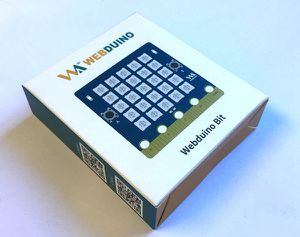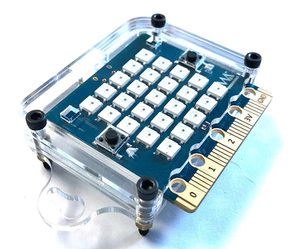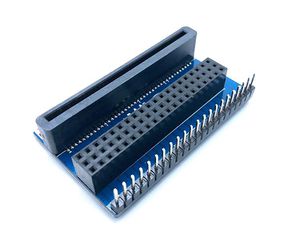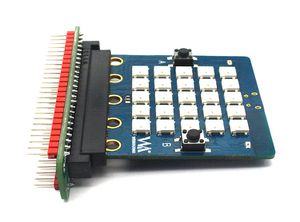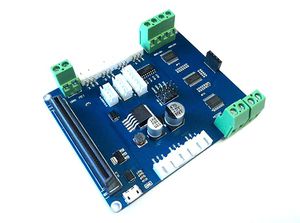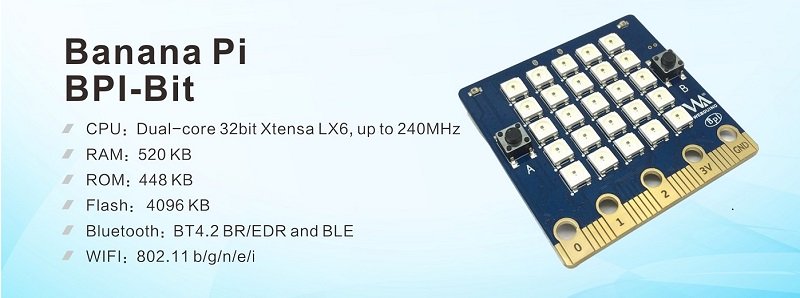Difference between revisions of "BPI:bit for Arduino"
(→Install Platform IO) |
|||
| (4 intermediate revisions by 2 users not shown) | |||
| Line 18: | Line 18: | ||
=BPI:bit for Arduino-IDE= | =BPI:bit for Arduino-IDE= | ||
| − | == | + | ==Installation Instructions== |
| − | + | You can get more information about Arduino-esp32 from this page:https://github.com/espressif/arduino-esp32 | |
==Wired connection board== | ==Wired connection board== | ||
| Line 27: | Line 27: | ||
please see this documents:[[2 Wired connection board]] | please see this documents:[[2 Wired connection board]] | ||
| − | + | Installation instructions using Arduino IDE Boards Manager | |
| − | + | == Using Arduino IDE Boards Manager (preferred) == | |
| − | + | - Stable release link: https://raw.githubusercontent.com/espressif/arduino-esp32/gh-pages/package_esp32_index.json | |
| − | + | - Development release link: https://raw.githubusercontent.com/espressif/arduino-esp32/gh-pages/package_esp32_dev_index.json | |
| − | |||
| − | |||
| − | + | Starting with 1.6.4, Arduino allows installation of third-party platform packages using Boards Manager. We have packages available for Windows, Mac OS, and Linux (32, 64 bit and ARM). | |
| − | |||
| − | + | Install the current upstream Arduino IDE at the 1.8 level or later. The current version is at the Arduino website. | |
| − | + | Start Arduino and open Preferences window. | |
| − | + | Enter one of the release links above into Additional Board Manager URLs field. You can add multiple URLs, separating them with commas. | |
| − | + | Open Boards Manager from Tools > Board menu and install esp32 platform (and don't forget to select your ESP32 board from Tools > Board menu after installation). | |
| − | |||
| − | |||
| − | |||
| − | |||
| − | |||
| − | |||
| − | |||
| − | |||
| − | |||
| − | |||
| − | |||
| − | |||
| − | |||
| − | |||
| − | |||
| − | |||
| − | |||
| − | |||
| − | |||
| − | |||
| − | |||
| − | |||
| − | |||
| − | |||
| − | |||
| − | |||
| − | |||
| − | |||
| − | |||
| − | |||
| − | |||
| − | |||
| − | |||
| − | |||
| − | |||
| − | |||
| − | |||
| − | |||
| − | |||
| − | |||
| − | |||
| − | |||
| − | |||
| − | |||
| − | |||
| − | |||
| − | |||
| − | |||
| − | |||
| − | |||
| − | |||
| − | |||
| − | |||
| − | |||
| − | |||
| − | |||
| − | |||
| − | |||
| − | |||
| − | |||
| − | |||
| − | |||
| − | |||
| − | |||
| − | |||
| − | |||
| − | |||
| − | |||
| − | |||
| − | |||
| − | |||
| − | |||
| − | |||
| − | |||
| − | |||
| − | |||
| − | |||
=How to development with BPI:bit= | =How to development with BPI:bit= | ||
| Line 167: | Line 87: | ||
|} | |} | ||
==How to use with Arduino IDE== | ==How to use with Arduino IDE== | ||
| + | |||
| + | |||
===Source code on github=== | ===Source code on github=== | ||
| Line 178: | Line 100: | ||
=How to use with Platform IO= | =How to use with Platform IO= | ||
| + | |||
| + | ==Install Platform IO== | ||
| + | [[How to install Platform IO]] | ||
==Source code at github== | ==Source code at github== | ||
Latest revision as of 19:55, 27 April 2020
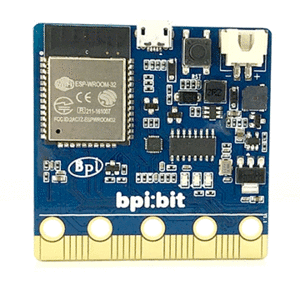
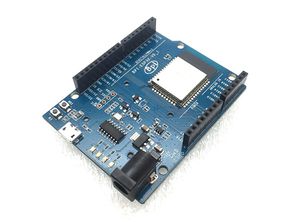
Contents
About BPI:bit
This product adopts esp-wroom-32 module as the core for design, and supports wi-fi, bluetooth, BLE and other wireless communication modes.
The BPI bit (also referred to as BPI-bit, stylised as bpi:bit) is an ESP32 with 32-bit Xtensa LX6 dual-core processor based embedded system. It supports Webduino, Arduino, MicroPython as well as Scratch X programming environments.
More about Banana Pi BPI:bit,please see :BPI-Bit
BPI:bit for Arduino-IDE
Installation Instructions
You can get more information about Arduino-esp32 from this page:https://github.com/espressif/arduino-esp32
Wired connection board
Connect the boards to your computer via the MicroUSB wire, it is same as BPI:bit with microPython.
please see this documents:2 Wired connection board
Installation instructions using Arduino IDE Boards Manager
Using Arduino IDE Boards Manager (preferred)
- Stable release link: https://raw.githubusercontent.com/espressif/arduino-esp32/gh-pages/package_esp32_index.json
- Development release link: https://raw.githubusercontent.com/espressif/arduino-esp32/gh-pages/package_esp32_dev_index.json
Starting with 1.6.4, Arduino allows installation of third-party platform packages using Boards Manager. We have packages available for Windows, Mac OS, and Linux (32, 64 bit and ARM).
Install the current upstream Arduino IDE at the 1.8 level or later. The current version is at the Arduino website. Start Arduino and open Preferences window. Enter one of the release links above into Additional Board Manager URLs field. You can add multiple URLs, separating them with commas. Open Boards Manager from Tools > Board menu and install esp32 platform (and don't forget to select your ESP32 board from Tools > Board menu after installation).
How to development with BPI:bit
| Arduino IDE Programing Function Define | |||
| Function | IO | ||
|---|---|---|---|
| RGB_LED | IO4 | ||
| RGB_LED_POWER | IO2 | ||
| BUZZER | IO25 | ||
| BOTTON_A | IO35 | ||
| BOTTON_B | IO27 | ||
| LIGHT_SENSOR1(upper left) | IO36 | ||
| LIGHT_SENSOR2(upper right) | IO39 | ||
| TEMPERTURE_SENSOR | IO34 | ||
| MPU9250_AD0 | IO0 | ||
| Communication Protocol | |||
| SPI | |||
| MISO | IO19 | ||
| MOSI | IO23 | ||
| SCK | IO23 | ||
| SS | IO5 | ||
| I2C | |||
| SCL | IO22 | ||
| SDA | IO21 | ||
How to use with Arduino IDE
Source code on github
- Source code on github: https://github.com/BPI-STEAM/BPI-BIT-Arduino-IDE
Lighting the RGB LED
How to use with Platform IO
Install Platform IO
Source code at github
- Source code on github : https://github.com/BPI-STEAM/BPI-BIT-PlatformIO
Text Editor
We need to prepare a text editor in advance (VSCode or Atom)
Add Espressif 32 Development Kit
Documents
- BPI-Bit PlatformIO 4.0.0a3 documentation :https://docs.platformio.org/en/latest/boards/espressif32/bpi-bit.html#
- How to use with Platform IO
- BPI:bit arduino basic development tutorials(chinese version) : http://forum.banana-pi.org/t/bpi-bit-arduino-basic-development-tutorials-chinese-version/7299
- Bpi:bit + Arduino IDE, shared by JavierPiay :http://forum.banana-pi.org/t/bpi-bit-arduino-ide/7244
